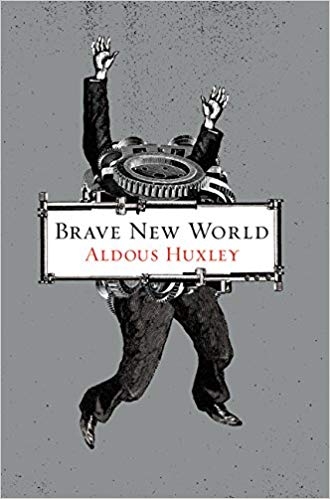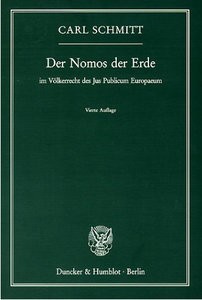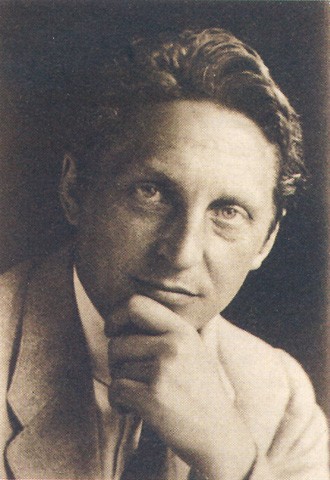
The Breakdown of Order in Late Mass Democracy
By John Derbyshire
Ex: http://www.hlmenckenclub.org
Good morning, ladies and gentlemen. Thank you for being here, and thanks to Paul for what already looks like another very successful conference.
First somewhat of an apology. The title of my talk is misleading. I have the heart and soul of a freelance journalist, and we don’t bother much with titles. Titles to articles in newspapers and magazines were traditionally supplied by subeditors—the people responsible for headlines and photo captions. Where titles are concerned, a freelancer has to take his chances with the subs.
That’s not precisely what happened here. What actually happened was, Paul asked me if I’d join a panel on anarcho-tyranny. I said I’d be delighted. Paul asked if there was any particular subtopic I wanted to focus on. I said: “Nah, just give me a topic and I’ll run with it.” Paul then listed my topic as: “The Breakdown of Order in Late Mass Democracy.”
I tell you this to make it plain that I don’t, from long habit, take titles very seriously; and this is not Paul’s fault.
So I can now tell you that, after pondering the title Paul has supplied me with, I don’t in fact think there will be a breakdown of order in what—yes, I do agree—we can rightly call “late mass democracy.”
Not only do I think there will not be a breakdown of order, I fear the opposite thing: an intensification of order. Let me explain that.
I think the distinguishing characteristic of late mass democracy is the elites getting their mojo back. After a Century of the Common Man, elites are now saying to themselves, in the current popular idiom: “We’ve got this.”
To explain what I mean, let me take a brief historico-literary detour.*
When I was getting my secondary education back in England in the early 1960s, a common exercise for sixth formers—that is, high school juniors and seniors—was to read George Orwell’s Nineteen Eighty-Four, and then to read Aldous Huxley’s Brave New World, and to write an essay declaring, with supporting arguments, which of the two books you thought the actual future would more closely resemble.
 Both these books presented the reader with a dystopia—a dark view of humanity’s future. The two dystopias were radically different, though.
Both these books presented the reader with a dystopia—a dark view of humanity’s future. The two dystopias were radically different, though.
In Orwell’s vision, as I’m sure is well known, the human spirit had been tamed by terror. A ruling elite, divided into an Inner Party and an Outer Party, maintained itself by fear. Outer Party members, who did the administrative grunt work, were kept under constant vigilance by the Thought Police. Dissidents were hauled away to be tortured and killed. A great sullen mass of proles, with no political rights, were kept pacified by a coarse kind of popular culture and frequent spasms of war fever, and were also under watch by the Thought Police, so that potential troublemakers could be quickly identified and eliminated.
Huxley’s dystopia was altogether different. Huxley’s planet is unified and at peace. Its affairs are managed by ten regional Controllers. Marriage, childbirth, and family life have been abolished, along with all kinds of suffering — even such minor kinds as disappointment and frustration. Also gone are the nation-state, war, religion, ethnicity, and all profound art and literature. Disease has been banished. Old age has been banished too, very nearly: Citizens are healthy, vigorous, and attractive until about age 60, when they decline quickly to death. Everyone lives in a state of contented hedonism, assisted by regular doses of soma, a freely available narcotic with no side- or after-effects. Sex is promiscuous and recreational, with universal free access to contraception and abortion.
The necessary work of Huxley’s society is carried out via a system of castes, with bright and capable Alphas at the top, then betas, gammas, deltas, down to dimwitted Epsilons at the bottom. Caste is determined in the Hatcheries, where good-quality eggs and sperm are mated to produce Alphas. Inferior zygotes are assigned to the lower castes and cloned. The production of well-adjusted citizens is completed in Conditioning units.
All this is accomplished so successfully that society is well-nigh self-regulating. The Controllers, though in theory they’re possessed of despotic powers, in fact have very little to do.
When I got this assignment around age 17, I pondered the matter and came down on the side of Huxley as having given us a more probable picture of the future. I can’t honestly remember my arguments, but I suspect my choice was mainly esthetic. Orwell’s vision was plainly horrible. It even smelled bad: remember how Winston Smith’s apartment building stank of boiled cabbage? Huxley’s world, on the other hand, didn’t sound bad at all. Universal peace; no more diseases; pop a harmless pill if you’re unhappy; guilt-free recreational sex; what’s not to like? When you read Brave New World, you know there’s something badly wrong with it; but it’s surprisingly difficult to say what, exactly, that is. Speaking as a bookish intellectual, I would say that what’s wrong is the stasis, the end of any quest for knowledge, for deeper understanding of the world.
When I look at the trends of our own time, it seems to me that my 1962 judgment was correct, however accidentally. Of course, Huxley’s vision was only very approximately predictive. He got a lot of things wrong. We don’t need a caste of dimwitted Epsilons to do the industrial work, we can have robots do it.
 More glaringly, he did not foresee the great explosion in the populations of hopeless people seeking to escape chaotic nations—the crowds we have seen on our TV screens this past few weeks heading up through Mexico; with, looming up behind them, the prospect of—what is the latest UN projection? Four billion, is it?—desperate Africans by the end of this century.
More glaringly, he did not foresee the great explosion in the populations of hopeless people seeking to escape chaotic nations—the crowds we have seen on our TV screens this past few weeks heading up through Mexico; with, looming up behind them, the prospect of—what is the latest UN projection? Four billion, is it?—desperate Africans by the end of this century.
Still, if the civilized world can find some way to deal with those issues, or can just fence itself off from them, the trendlines for our society are Huxleyan. Soma, the universal tranquillizer, is not yet with us, but with a couple more cycles of pharmacological advance, it likely will be. An alpha class of genetically superior humans could arise quite naturally and commercially from techniques of embryo selection already available. Something like it is anyway emerging naturally, from assortative mating among our meritocratic elites. As has often been noted: doctors used to marry nurses and lawyers used to marry their secretaries. Now doctors marry doctors and lawyers marry lawyers. Huxley’s feelies—entertainment fed in through all the senses—are not far from the Virtual Reality gadgets already on the market.
As for social disorder: well, Pat Buchanan—who turned eighty yesterday, by the way: Happy Birthday, Pat!—reminded us in a column just last month how very disorderly the USA, and the rest of the civilized world, was fifty years ago. The Weathermen and the Black Panthers; the Symbionese Liberation Army—remember them? The Red Brigades and the Baader-Meinhof gang; political assassinations; the 1968 Democratic Convention; Kent State and Cornell; …
Antifa put up a good show; and yes, I certainly agree that they illustrate the principle of anarcho-tyranny very well, controlling the streets while leftist politicians stand down the police forces. As a force for generalized disorder, though, they are not impressive. Antifa would run like chickens from a whiff of grapeshot.
The overall trend of our societies is Huxleyan. It is the trend Steven Pinker has famously described in his book Better Angels: towards a pacified, tranquillized, hedonistic caste society.
Here in the USA the trend lines can actually be traced some way back.
In every organized society there is a tension between order and liberty. We Americans love our liberty, of course; but my love of liberty stops well short of loving your liberty to break my leg or pick my pocket. There needs to be social order.
 Our own conception of social order is a fermented brew whose original ingredients were sketched out by David Hackett Fischer in his 1989 classic Albion’s Seed. Fischer described how the four main stocks of British settlers in the 17th and 18th centuries each contributed an ingredient to the national culture, and in particular to our notions of social order.
Our own conception of social order is a fermented brew whose original ingredients were sketched out by David Hackett Fischer in his 1989 classic Albion’s Seed. Fischer described how the four main stocks of British settlers in the 17th and 18th centuries each contributed an ingredient to the national culture, and in particular to our notions of social order.
-
The Puritans of New England, drawn heavily from England’s literate artisan classes, had a conception of social order Fischer defines thus: “A condition where everything was put in its proper place and held there by force if necessary … a condition of organic unity.” Crime stats tell the story. Further quote from Fischer: “Crimes against property were more common than crimes against persons. But crimes against order were the most common of all.” [My italics.] The examples Fischer gives are: violations of the sabbath, blasphemy, sexual offenses, idleness, lying, domestic disorder, or drunkenness.
-
The “distressed cavaliers” and rustic, illiterate English peasants and house servants who populated Virginia and the Tidewater South had a much less egalitarian, much more hierarchical notion of social order, with county sheriffs appointed in the name of the Crown, not elected constables as in New England. There was much more interpersonal violence here; but the violence too was hierarchical. Fischer: “It was often used by superiors against inferiors, and sometimes by equals against one another, but rarely by people of subordinate status against those above them.” Crimes of violence were more common than property crimes.
-
The Quakers of the Delaware Valley based social order on tolerance, forbearance, and the Golden Rule. Quote from Fischer: “There were no crimes of conscience in the Quaker colonies before 1755.” Social order meant social peace. Criminal penalties were generally lighter than in the other colonies; but, says Fischer: “They punished very harshly acts of disorder in which one citizen intruded upon the peace of another … Penalties for crimes of sexual violence against women were exceptionally severe.”
-
And then there were the Scotch-Irish of the back-country, drawn from the half-civilized border lands where England meets Scotland, and from those same border folks’ Protestant settlements in Northern Ireland. These people had the least structured notion of social order among all the colonists. Fischer: “The prevailing principle was lex talionis, the rule of retaliation. It held that a good man must seek to do right in the world, but when wrong was done to him he must punish the wrongdoer himself by an act of retribution that restored order and justice in the world … A North Carolina proverb declared that ‘every man should be sheriff on his own hearth.’” That didn’t leave much for government to do. This was a very individualistic culture. Property crimes were punished much more severely than crimes of violence. One 18th-century court gave the following sentences: for hog stealing, death by hanging; for the rape of an 11-year-old girl, one shilling fine.
Overlaid on these original order traditions were the political arrangements thrashed out by the founders of our republic. Just to remind you, in very brief: Anti-Federalists favored localism and democracy modeled on the classical age, as updated by Locke and Montesquieu—a loose collection of self-governing cantons with minimal central control. Federalists argued for a stronger central government as better suited for defense and financial stability. Out of these arguments emerged our Constitution and Bill of Rights.
The Constitution was supposed to have settled this question: Could a republic of the classical democratic or aristocratic type, as somewhat modernized by recent thinkers, be scaled up to continental size, given that the only pre-modern unitary states of that size had been despotic empires?
You can make a case that the answer was “No” for the first hundred years or so of the U.S.A.; that the Civil War, whatever its proximate cause, showed the fundamental instability of the 1789 model; but that the model was then rescued, from the late 19th century on, by technology—particularly by mass communication, mass transportation, and mass education.
And thus we arrived at mass democracy: and not only us, but much of the rest of the world. And of course I am over-simplifying: the relevant developments have roots back in the 16th century, with printing and the Reformation—what the Third Duke of Norfolk dismissed with disgust as “this new learning.”
But we arrived at mass democracy, and the 20th century was the Century of the Common Man. We still had elites, of course; but under mass democracy—or, in the context of my title, early mass democracy—the elites had to pretend to be just lucky commoners. They had to practice the common touch.
The transformation is easier to see in cultures that came later to the party. Japanese elites used to wear fantastically elaborate uniforms. Palace flunkies used to stain their teeth black to distinguish themselves from the common herd. Now Japan’s elites strive to look just like middle-class salarymen. Or perhaps you’ve seen that juxtaposition of two photographs of female undergraduates at an Egyptian university, one taken in 1950 where they are in Western frocks and blouses, a westernized elite, the other much more recent with them all in burkas like peasant women.
Now, in the 21st century, the elites are making a comeback. They’ve had a bellyful of this Common Man stuff. How to do it, though? The traditional hierarchy of rank and genealogy—the pattern of order that shaped Europe and the old Tidewater South—is long gone. The violent egalitarianism of the Scotch-Irish has been corralled off into a few localities none of us ever need visit: inner-city ghettos and remote mountain villages. The totalitarian order of the big old 20th-century despotic utopias proved a bust, though it lingers on in a few hell-holes like North Korea.
What system of order is appropriate to an age of unbounded material plenty, ample leisure, an internet panopticon, and rapid growth of understanding in the human sciences and biotechnology? I think the goodthinking consensual model of Puritan Massachusetts set the model; except that, with sophisticated conditioning, a free ration of soma, and endless hedonistic distractions, there’ll be no need to burn witches or hang Quakers.
If we can just find some way to manage, or contain, those swelling tides of the hopeless heading for our borders, we shall reach the Brave New World at last.
 Come sappiamo, dalla dissoluzione dell’ordinamento medioevale sorse lo Stato territoriale accentrato e delimitato. In questa nuova concezione della territorialità – caratterizzata dal principio di sovranità – l’idea di Stato superò sia il carattere non esclusivo dell’ordinamento spaziale medioevale, sia la parcellizzazione del principio di autorità (1).
Come sappiamo, dalla dissoluzione dell’ordinamento medioevale sorse lo Stato territoriale accentrato e delimitato. In questa nuova concezione della territorialità – caratterizzata dal principio di sovranità – l’idea di Stato superò sia il carattere non esclusivo dell’ordinamento spaziale medioevale, sia la parcellizzazione del principio di autorità (1).






 del.icio.us
del.icio.us
 Digg
Digg
 Both these books presented the reader with a dystopia—a dark view of humanity’s future. The two dystopias were radically different, though.
Both these books presented the reader with a dystopia—a dark view of humanity’s future. The two dystopias were radically different, though. More glaringly, he did not foresee the great explosion in the populations of hopeless people seeking to escape chaotic nations—the crowds we have seen on our TV screens this past few weeks heading up through Mexico; with, looming up behind them, the prospect of—what is the latest UN projection? Four billion, is it?—desperate Africans by the end of this century.
More glaringly, he did not foresee the great explosion in the populations of hopeless people seeking to escape chaotic nations—the crowds we have seen on our TV screens this past few weeks heading up through Mexico; with, looming up behind them, the prospect of—what is the latest UN projection? Four billion, is it?—desperate Africans by the end of this century. Our own conception of social order is a fermented brew whose original ingredients were sketched out by David Hackett Fischer in his 1989 classic Albion’s Seed. Fischer described how the four main stocks of British settlers in the 17th and 18th centuries each contributed an ingredient to the national culture, and in particular to our notions of social order.
Our own conception of social order is a fermented brew whose original ingredients were sketched out by David Hackett Fischer in his 1989 classic Albion’s Seed. Fischer described how the four main stocks of British settlers in the 17th and 18th centuries each contributed an ingredient to the national culture, and in particular to our notions of social order. The enduring fame of German psychotherapist Hans Prinzhorn (1886–1933) is based almost entirely upon one book, Bildnerei der Geisteskranken (Artistry of the mentally ill), that brilliant and quite unprecedented monograph on the artistic productions of the mentally ill, which appeared in 1922. Sadly, it is too often forgotten that Hans Prinzhorn was the most brilliant and independent disciple of Germany’s greatest 20th-Century philosopher, Ludwig Klages (1872–1956).
The enduring fame of German psychotherapist Hans Prinzhorn (1886–1933) is based almost entirely upon one book, Bildnerei der Geisteskranken (Artistry of the mentally ill), that brilliant and quite unprecedented monograph on the artistic productions of the mentally ill, which appeared in 1922. Sadly, it is too often forgotten that Hans Prinzhorn was the most brilliant and independent disciple of Germany’s greatest 20th-Century philosopher, Ludwig Klages (1872–1956).